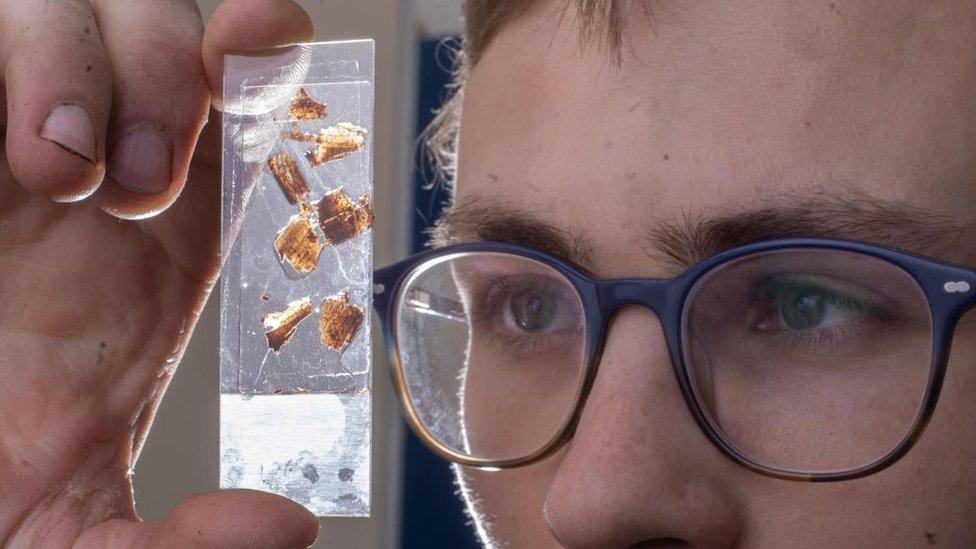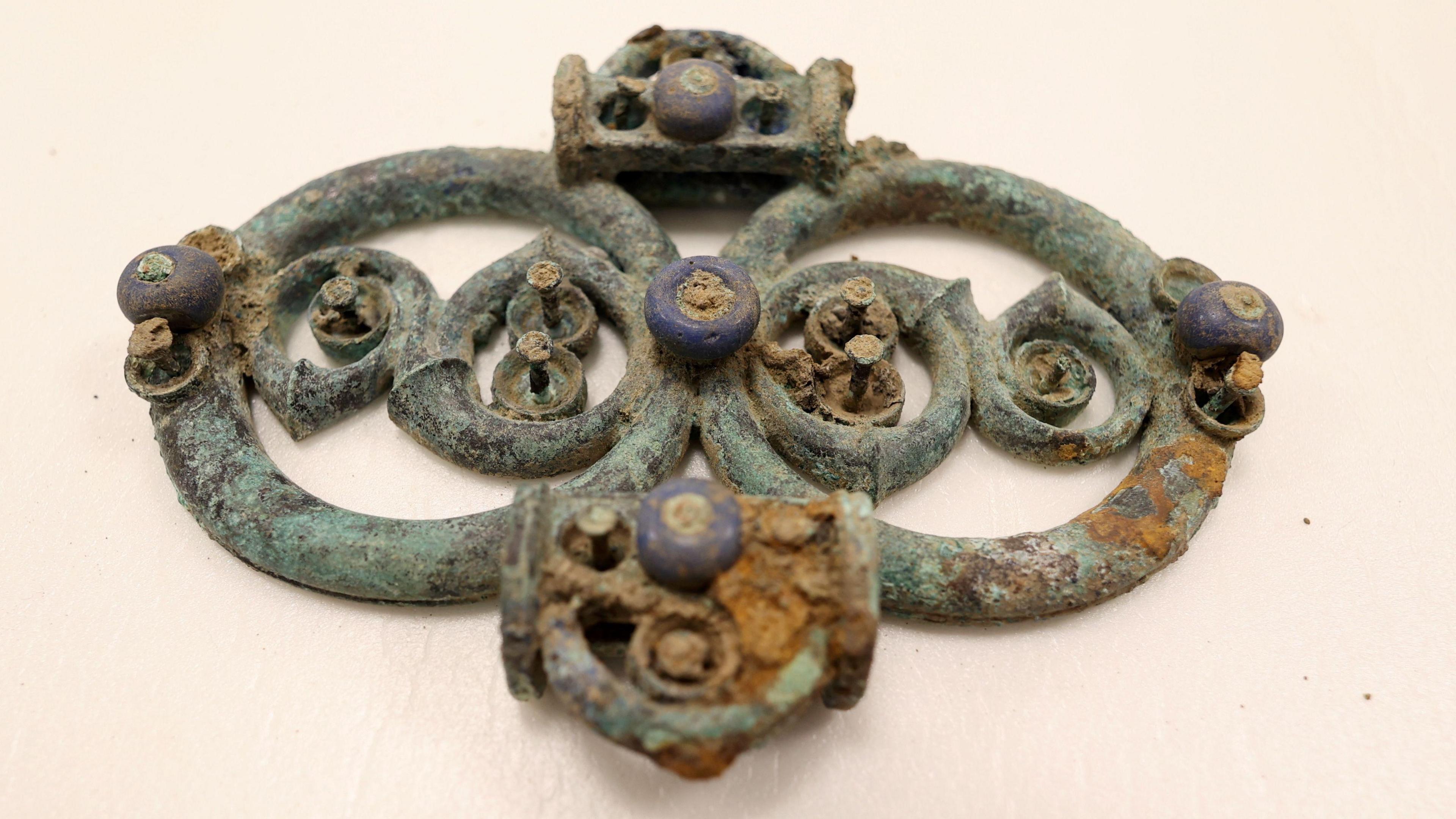Inside the prehistoric 'fat factory'
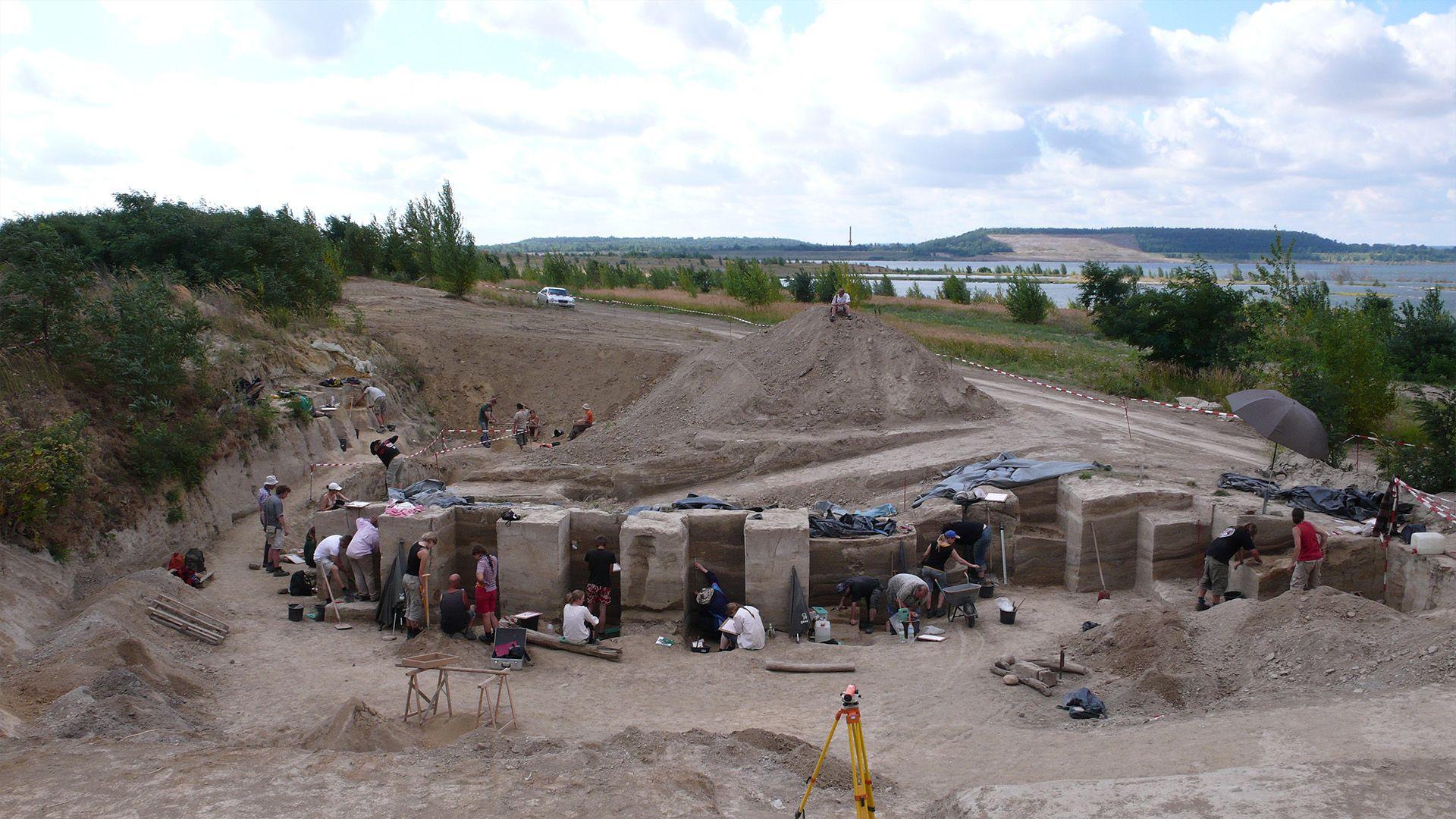
- Published
New research shows Neanderthals may have been even more food savvy than we first thought.
Archaeologists have already found out that they would break open animal bones to get out the fatty marrow which is packed full of calories.
Now new research from MONREPOS in Germany and Leiden University in the Netherlands found Neanderthals not only broke open bones, but also constructed a prehistoric 'fat factory'.
Researchers used to think this sort of behaviour started later in human ancestors, but the new findings suggest it could've been part of Neanderthal behaviour too.
More on Neanderthals
Neanderthals' homes were more like humans than we thought
- Published14 April 2024
Get a grip: How Neanderthals used glue on their tools
- Published23 February 2024
What did our early ancestors look like thousands of years ago?
- Published3 May 2024
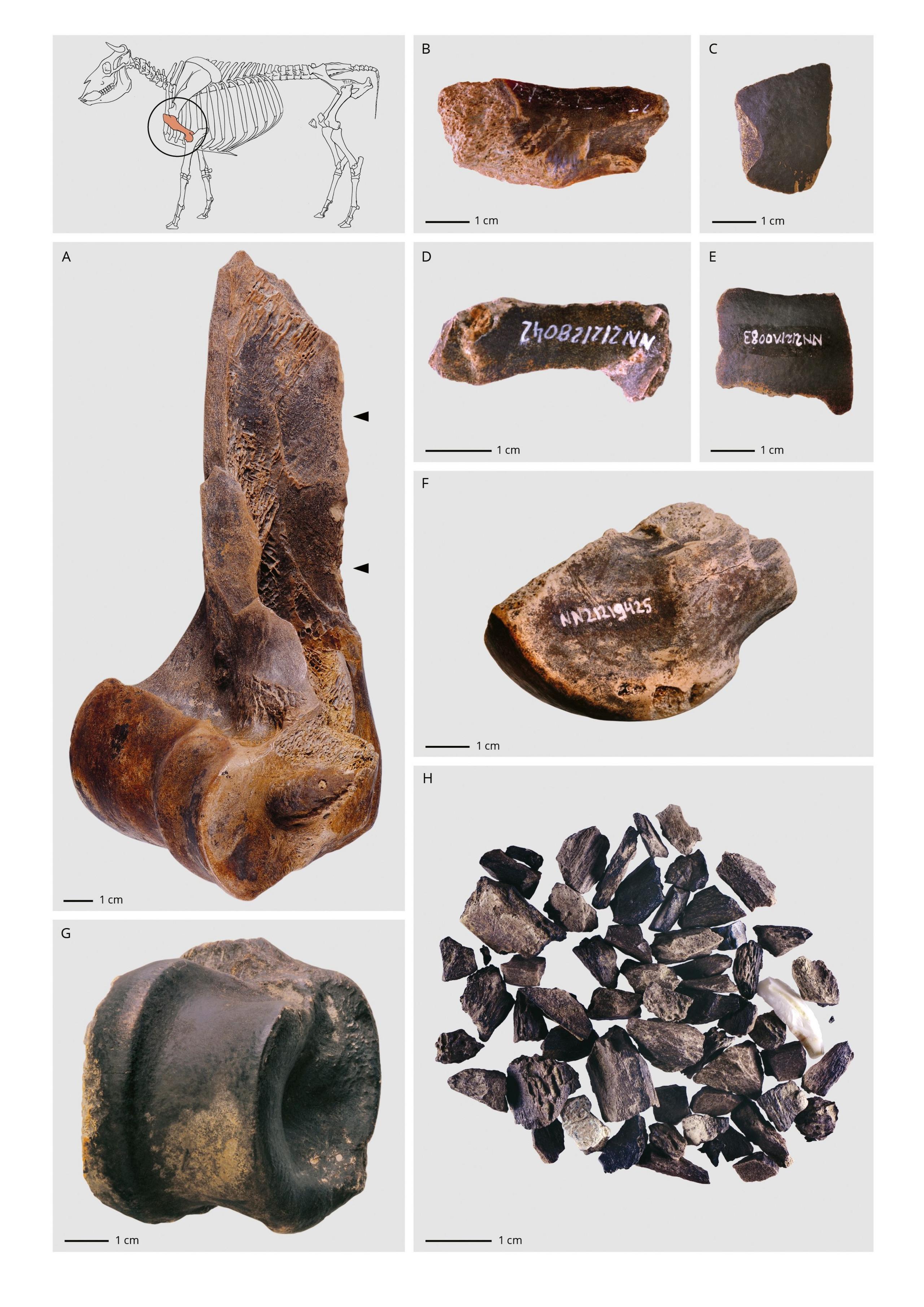
These are examples of what was found at the site ranging from complete bones to bone fragments
The evidence of the 'fat factory' was found at a site in Germany called Neumark-Nord which dates back to around 125,000 years ago when the temperatures were similar to what we experience today.
It was here where researchers found evidence that large mammal bones had been crushed and heated in water to made a rich bone grease.
Prof. Wil Roebroeks who worked on the study said: "What makes Neumark-Nord so exceptional is the preservation of an entire landscape, not just a single site."
That gives archaeologists an even better insight into how Neanderthals used to live all those years ago.
"We see Neanderthals hunting and minimally butchering deer in one area, processing elephants intensively in another, and—as this study shows—rendering fat from hundreds of mammal skeletons in a centralized location.
"There's even some evidence of plant use, which is rarely preserved. This broad range of behaviours in the same landscape gives us a much richer picture of their culture," he added.
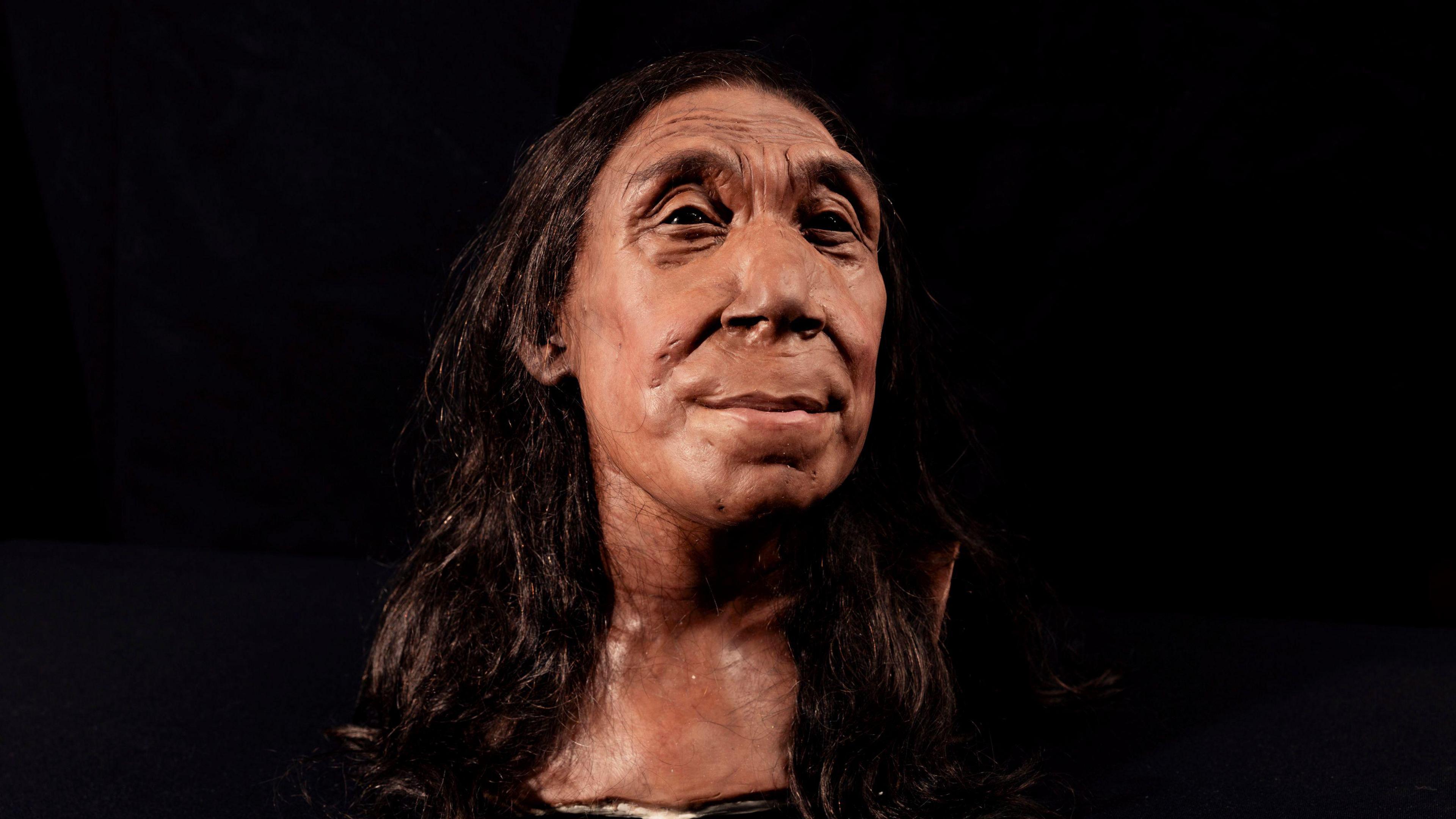
Scientists from the University of Cambridge made this recreation of what a Neanderthal woman might have looked like for a BBC documentary
Although you might hear people saying to avoid fat in our modern day diets, it's a nutritionally important food group.
It's full of calories which give people energy and it helps absorption of important vitamins.
In a time where food might be hard to come by, filling up on fat was especially important as a source of energy.
Dr. Lutz Kindler, another researcher on the project said this new study shows Neanderthals "understood both the nutritional value of fat and how to access it efficiently."
More stories like this
- Published4 July
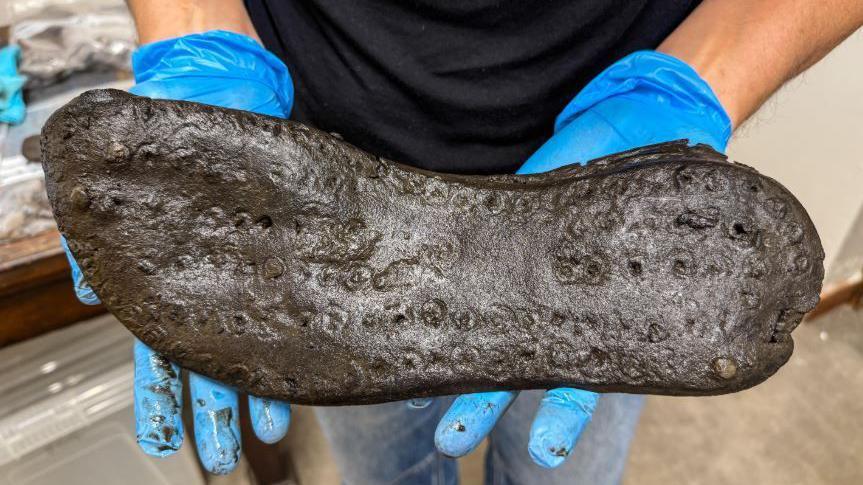
- Published12 February 2024
